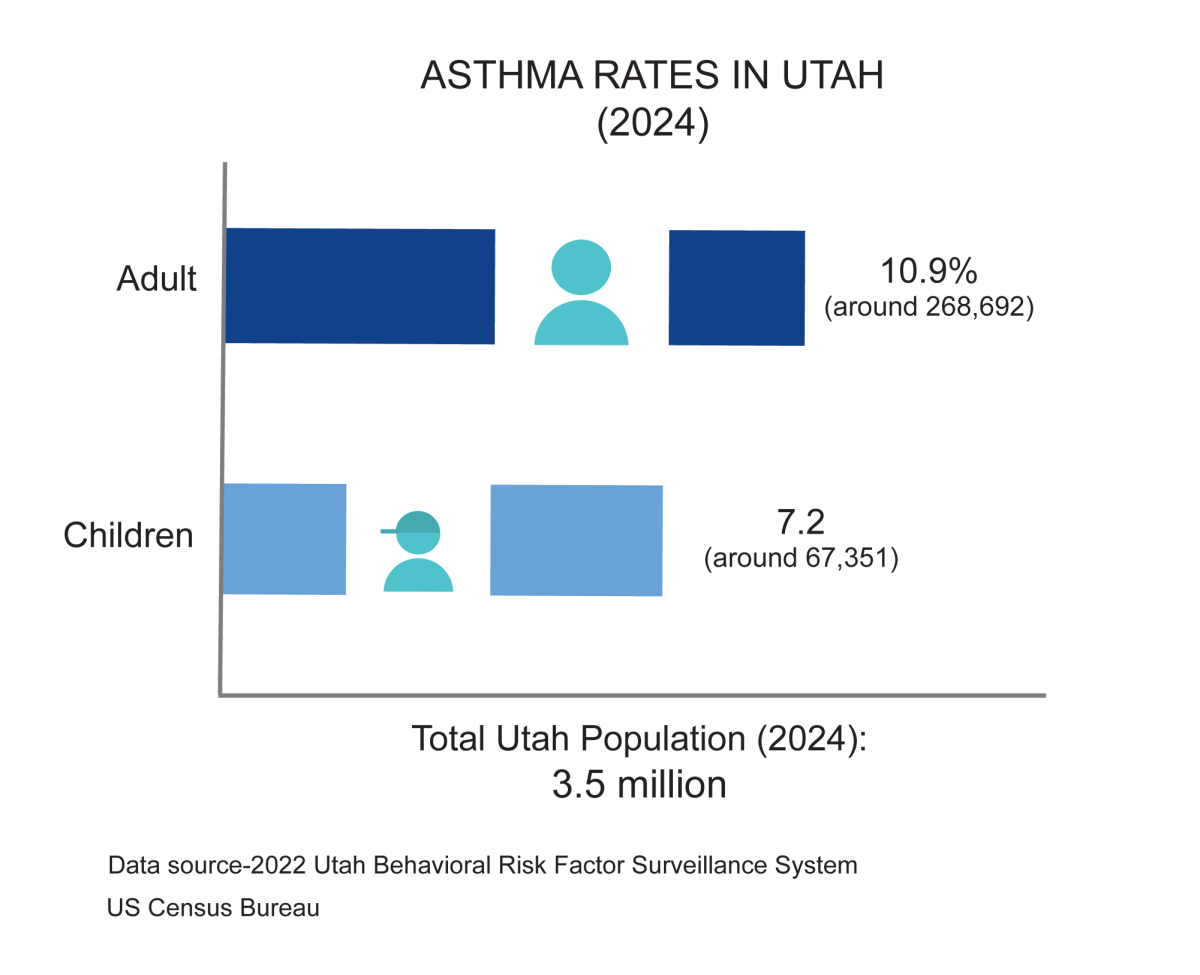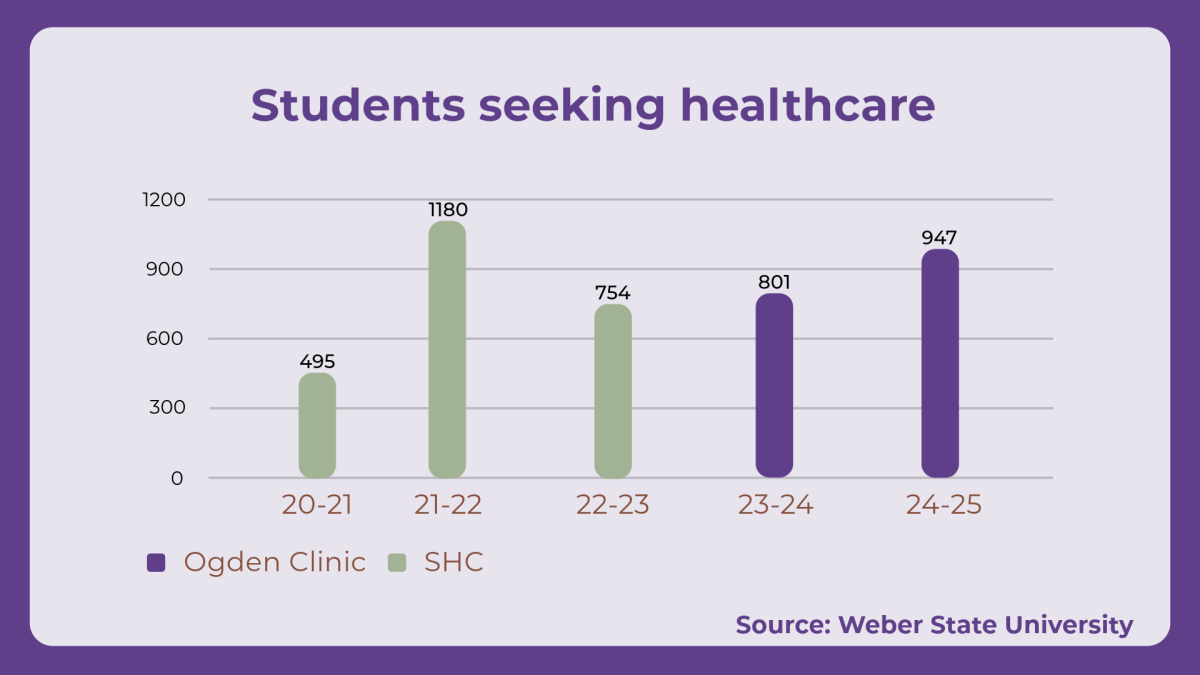
The Center for Disease Control says one in 68 children born in the United States will be identified with autism spectrum disorder (ASD). According to the University of Utah healthcare, one in 54 children will be diagnosed with ASD in Utah.
Unlike other disorders, autism is not a disorder that is easily detected, unless fully disclosed by the person. Students choose whether or not they wish to disclose it to Weber State’s Services for Students with Disabilities (SSD).
According to SSD’s 2013 end of year report, they helped approximately 668 students who registered with them and 6 percent of those student registered with ASD.
A father who wishes to remain anonymous to protect his family’s identity said, “It’s been my experience that ‘normal’ kids expect everyone else to act like them, and they have a tendency to ostracize anyone they don’t understand, which leads to bullying, depression, frustration, anger and meltdowns.”
The father’s teenage son has ASD and would often come home distraught from school. Students that have ASD can have their disorders misinterpreted and can be bullied in school.
“In our case, my son was coming home angry all the time and never wanted to talk about it. When he finally would, it ended up being a huge meltdown about how everyone was picking on him and everyone hated him,” the father said.
The symptoms of autism spectrum disorders, according to the CDC, can include problems with social skills, speech, language and restricted activities and interests such as:
- Avoiding eye contact or using facial expressions that don’t match what they’re saying
- Lack of interest in other people
- Unlikely to pursue social interaction
- Difficulty understanding other people’s feelings, reactions and nonverbal cues
- Delay in learning how to speak or doesn’t talk at all
- Trouble in starting a conversation
- Repeating words or phrases over and over
- Difficulty in communicating needs or desires
- Taking things too literally, missing humor, irony and sarcasm
- A strong need for order and routines
- Repetitive body movements such as rocking, spinning and hand flapping
- Obsessive attachment to unusual objects
People with ASD can have varying degrees of each disorder, from highly functional to degrees that require more patience and attention.
Stephanie Simonson, WSU English graduate, is on the spectrum and advised fellow students, “Don’t assume that an ASD person doesn’t like you if they don’t smile or say hi when passing you. We’re not really aware of ourselves — our facial expressions, the tone and pitch of our voices, etc. When we’re thinking about something else, so often people would think I was glowering or snapping at them when I was just lost in thought or enthusiastic about what I was saying.”
At times, people with ASD have an innate need for routines. They may feel the need to sit in the same spot in a classroom or be near the door.
“Sometimes we get it in our heads that a certain spot is safer, or we have a certain superstition about it,” said Simonson, whose brother-in-law is moderate on the spectrum and got into a fight with a fellow student, according to Simonson, because the student challenged him on why he always needed to stand by the door while waiting for a class. “It doesn’t always make sense, but we fixate on certain things or patterns. Predictability is important in many cases.”
Simonson advised that at times students may need to be more understanding of differences and be more accommodating.
“If they need some weird, specific accommodation that isn’t hurting you, don’t try to argue with them about it being illogical and not really making any difference. Odds are they already know and feel self-conscious about it,” she said.
The father said more often discussion is needed because there is little tolerance from other students.
“Not everyone in the world thinks and acts the same. Just because someone is wired and a little different, it doesn’t mean they’re any better or worse than anyone else,” said the father. “Those differences are what makes us special, not freaks or weird.”
When professors and peers are confronted with a situation where a person with ASD is upset, the father and Simonson both agree patience and calmness is needed.
“Everyone’s different, but keep your voice calm and level — very important — when you talk to them and, as you would with anyone, try to sort out why they’re feeling that way,” suggested Simonson.
However, at times the only thing that may calm someone with ASD is time.
“The best thing I know is patience. Stay calm and realize that what calms down a ‘normal’ person may not work here. You may not be able to calm them down at all,” the father said. “Most forms of autism makes them interpolate others’ emotions as their own. Getting angry will only make them worse. Basically, stay calm and patient.”
There are things that students at WSU can do to ensure they have the best experience in college.
Leaving comfort zones may be hard for students with ASD, but Simonson said, “There are things I was sure I’d regret trying in college, like living with roommates, but now that college is done, what I regret is not having those experiences.”
For students with ASD, WSU’s Services for Students with Disabilities can provide assistance with tutoring, registration assistance and various other accommodations for students who register with them.







